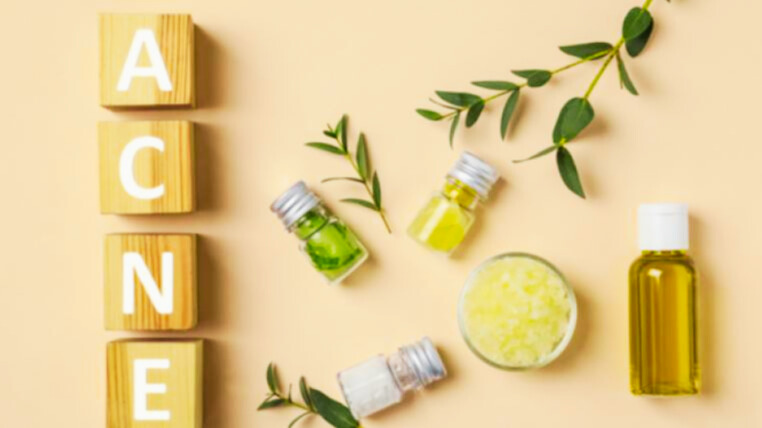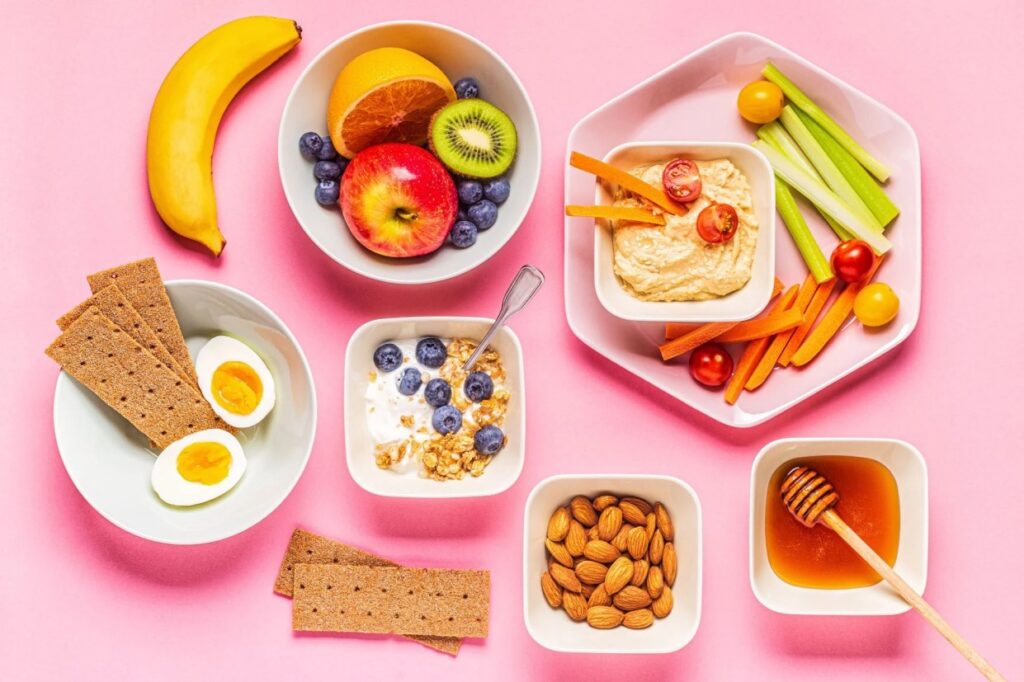Who doesn’t want radiant, glowing skin? Achieving that lit-from-within glow might seem like a dream, but with the right skincare routine and lifestyle habits, it’s completely achievable.
A glowing complexion isn’t just about aesthetics; it reflects your overall health and well-being. Plus, when your skin looks good, you feel more confident in your own skin—literally!
Let’s dive into the top skincare tips that can help you achieve that coveted glow.

20 Skincare Tips for Achieving a Glowing Complexion
1. Cleanse Your Skin Daily
Cleansing is the foundation of any skincare routine. It helps remove dirt, oil, and makeup that accumulate on your skin throughout the day. Choose a cleanser suited for your skin type—gel-based for oily skin, cream-based for dry skin, or gentle cleansers for sensitive skin. Avoid over-cleansing, as it can strip your skin of its natural oils, leaving it dry and irritated.
2. Exfoliate Regularly
Exfoliation is like hitting the refresh button for your skin. By removing dead skin cells, you allow fresh, healthy skin to shine through. Opt for chemical exfoliants like AHAs and BHAs for a gentle yet effective approach or stick to physical scrubs for a quick fix. Just don’t overdo it—once or twice a week is enough for most skin types.
3. Hydration Is Key
Moisturizing is a non-negotiable step, no matter your skin type. It locks in moisture and keeps your skin barrier healthy. For oily skin, go for lightweight, gel-based moisturizers, while those with dry skin can benefit from richer, cream-based formulas. And don’t forget to drink plenty of water—it’s the simplest way to hydrate your skin from the inside out.
4. Use Sunscreen Daily
If you’re skipping sunscreen, you’re sabotaging your skin. UV rays are the biggest culprits behind premature aging, dark spots, and dullness. Use a broad-spectrum sunscreen with at least SPF 30 every single day—even when it’s cloudy or you’re indoors. Reapply every two hours if you’re outside for extended periods.
5. Incorporate Antioxidants in Your Routine
Antioxidants are like superheroes for your skin, fighting off damage from free radicals and pollution. Vitamin C serums are a popular choice for brightening the skin and reducing pigmentation. You can also look for products containing Vitamin E, green tea, or niacinamide for added benefits.
Also Check: 10 Quick Metabolism-Boosting Snack Recipes for Busy People
6. Follow a Healthy Diet
The saying “you are what you eat” couldn’t be more true when it comes to your skin. Your diet plays a crucial role in maintaining a glowing complexion. Load up on fresh fruits and vegetables rich in vitamins, minerals, and antioxidants. Foods like berries, spinach, avocados, and nuts are particularly skin-friendly. Omega-3 fatty acids found in fish, flaxseeds, and walnuts help maintain your skin’s elasticity and hydration.
On the flip side, try to limit your intake of sugar and processed foods. These can lead to inflammation and breakouts, robbing your skin of its natural glow. And of course, don’t forget to drink plenty of water—hydration starts from within!
7. Get Enough Sleep
Did you know that your skin regenerates while you sleep? This is why it’s called “beauty sleep.” When you skimp on sleep, your skin pays the price. Dark circles, puffiness, and a dull complexion are just some of the consequences of poor sleep habits.
Aim for 7-9 hours of quality sleep every night. To enhance the benefits, use a silk pillowcase, which is gentler on your skin and prevents wrinkles. If you have trouble falling asleep, establish a bedtime routine, avoid screens before bed, and consider calming practices like meditation or a warm bath.
8. Manage Stress Effectively
Stress doesn’t just affect your mind—it shows up on your skin too. Chronic stress can lead to acne, wrinkles, and even exacerbate conditions like eczema and psoriasis. When you’re stressed, your body produces more cortisol, which can trigger inflammation and breakouts.
Combat stress by finding activities that help you relax. This could be yoga, meditation, journaling, or simply going for a walk in nature. Even setting aside 10-15 minutes a day for mindfulness can make a huge difference in your skin’s appearance—and your overall well-being.
9. Use Face Masks
Face masks are like a spa treatment for your skin. They provide a concentrated dose of nutrients and hydration to target specific concerns. For glowing skin, try a hydrating mask with ingredients like hyaluronic acid or glycerin. Clay masks are great for detoxifying and clearing out pores, while sheet masks provide an instant boost of hydration and radiance.
Use a face mask 1-2 times a week as a treat for your skin. Make sure to choose a mask that suits your skin type and addresses your unique needs. It’s also a great excuse to indulge in some self-care time!
10. Avoid Touching Your Face
How often do you touch your face without even realizing it? It’s a common habit, but it can wreak havoc on your skin. Your hands carry bacteria, dirt, and oil that can transfer to your face, causing breakouts and irritation.
To break the habit, be mindful of when and why you touch your face. If it’s because your skin feels oily, carry blotting papers with you. If it’s because of stress or boredom, find another outlet like fidgeting with a stress ball. Keeping your hands clean and avoiding direct contact with your face can make a noticeable difference in your skin’s clarity.
Also Check: What Happens to Your Body When You Don’t Drink Enough Water?
11. Avoid Smoking and Limit Alcohol
Smoking is one of the worst things you can do for your skin. It damages collagen and elastin, leading to premature wrinkles and sagging. Plus, it reduces blood flow, leaving your skin looking dull and lifeless. Similarly, alcohol dehydrates your skin, causing it to lose its natural glow.
If you’re serious about achieving radiant skin, quitting smoking and cutting back on alcohol should be a priority. Instead, hydrate with water, herbal teas, or infused water for a refreshing and skin-friendly alternative.
12. Incorporate Retinoids
Retinoids are a gold standard in skincare for good reason. Derived from Vitamin A, they promote cell turnover, reduce fine lines, and even out skin tone. Over time, they can transform your skin, making it smoother, brighter, and more youthful.
Start with a low concentration of retinol if you’re new to it, and apply it at night after cleansing. Be sure to use sunscreen during the day, as retinoids can make your skin more sensitive to sunlight. Consistency is key—don’t expect overnight results, but stick with it, and you’ll see improvements over time.
13. Stay Consistent with Your Routine
A glowing complexion doesn’t happen overnight—it’s the result of consistent effort. Sticking to a daily skincare routine tailored to your skin type is essential. Cleanse, moisturize, and protect your skin every day, and don’t skip steps just because you’re tired or busy.
It’s also important to give products enough time to work. Many people abandon skincare products too soon, thinking they’re not effective. Remember, it can take weeks or even months to see results, so patience and consistency are key.
14. Avoid Overloading Your Skin with Products
When it comes to skincare, more isn’t always better. Overloading your skin with too many products can lead to irritation, clogged pores, and breakouts. Stick to the essentials: a gentle cleanser, a moisturizer, and sunscreen for the daytime. You can add serums, exfoliants, and treatments as needed, but don’t overwhelm your skin.
When layering products, apply them in order of texture—from thinnest to thickest. This ensures that each product is properly absorbed and can work effectively.
15. Use Natural Remedies
Sometimes, nature has the best solutions for your skin. Ingredients like aloe vera, honey, and turmeric have been used for centuries to enhance skin health. Aloe vera soothes and hydrates, honey has antibacterial properties, and turmeric brightens and evens out skin tone.
You can create DIY masks and scrubs using these ingredients, but always do a patch test first to avoid allergic reactions. Natural remedies are a great addition to your skincare routine, but they shouldn’t replace scientifically-proven products entirely.
16. Invest in Professional Treatments
While a good skincare routine works wonders, sometimes your skin needs a little extra help. Professional treatments like facials, microdermabrasion, chemical peels, and laser therapy can address specific concerns such as hyperpigmentation, acne scars, and fine lines. These treatments are designed to penetrate deeper layers of the skin and provide long-lasting results.
Consult with a licensed dermatologist or aesthetician to determine which treatment is right for your skin type and concerns. Regular professional treatments, combined with your at-home skincare routine, can give your skin that extra boost and keep it glowing.
17. Exercise Regularly
Exercise doesn’t just benefit your body—it’s fantastic for your skin too. Physical activity improves blood circulation, delivering oxygen and nutrients to your skin cells and giving your complexion a natural, healthy glow. Plus, sweating helps flush out toxins from your pores, leaving your skin refreshed.
Whether it’s yoga, running, or a simple home workout, aim to get moving for at least 30 minutes a day. Just don’t forget to cleanse your skin after exercising to prevent sweat and dirt from clogging your pores.
18. Protect Your Skin from Pollution
Pollution can be a silent enemy to your skin, causing dullness, premature aging, and even breakouts. Airborne pollutants can settle on your skin and lead to oxidative stress, which damages your skin barrier.
To protect your skin, use anti-pollution skincare products that contain antioxidants like Vitamin C and niacinamide. Cleansing your face thoroughly at the end of the day is crucial to remove any pollutants that may have accumulated. A hydrating mist or toner can also help refresh your skin throughout the day.
19. Stay Away from Harsh Chemicals
Harsh chemicals in skincare products can strip your skin of its natural oils, leading to irritation and sensitivity. Ingredients like parabens, sulfates, and synthetic fragrances are common culprits. Always read product labels carefully and opt for gentle, dermatologist-approved formulas.
If you’re unsure about an ingredient, do some research or consult with a dermatologist. Your skin will thank you for choosing clean, non-toxic products that support its health and glow.
20. Regularly Monitor Your Skin
Your skin’s needs can change over time due to factors like age, hormones, and environmental conditions. Regularly assess your skin’s condition and adjust your routine accordingly. For instance, you might need richer moisturizers in winter and lighter ones in summer.
Keep track of how your skin reacts to new products, and don’t hesitate to consult a dermatologist if you notice persistent issues like acne, redness, or unusual spots. Monitoring your skin closely ensures that you’re giving it exactly what it needs to stay radiant.
FAQs (Frequently Asked Questions)
1. How long does it take to see results from a skincare routine?
It typically takes 4-6 weeks to see noticeable improvements, as your skin needs time to adjust and regenerate. Be patient and consistent for the best results.
2. Can I achieve glowing skin naturally without products?
Yes! A healthy diet, regular exercise, proper hydration, and good sleep can significantly improve your skin’s glow without relying heavily on products.
3. Is it necessary to use expensive skincare products for glowing skin?
Not at all. Many affordable products contain effective ingredients. Focus on quality and suitability for your skin type rather than the price tag.
4. How often should I exfoliate my skin?
For most skin types, exfoliating 1-2 times a week is sufficient. Over-exfoliation can irritate your skin, so it’s important not to overdo it.
5. What’s the best way to prevent breakouts?
Stick to a consistent cleansing routine, avoid touching your face, and use non-comedogenic products. Managing stress and maintaining a healthy diet also help prevent breakouts.
Conclusion
Achieving a glowing complexion isn’t about following a one-size-fits-all formula—it’s about understanding your skin’s unique needs and taking consistent care of it. By combining a thoughtful skincare routine with healthy lifestyle habits, you can transform your skin and maintain its natural radiance.
Remember, patience is key. Skincare is a journey, not a sprint. Stick to the tips we’ve shared, stay hydrated, protect your skin, and most importantly, be kind to yourself. With time and effort, glowing skin is well within your reach!











